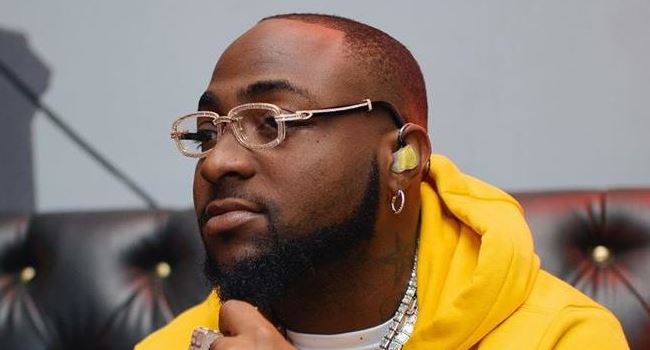As I write this, Nigeria’s social media space has been on fire over a 45-second trailer clip of a musical video that Nigerian musician, Davido, had posted on his Twitter handle, apparently to advertise a new musical release for other artistes working under his label to his nearly 14 million followers.
I really don’t know much about Nigerian music, and I remember saying, only a few days ago, that I probably won’t even recognise Davido if he walked past me. So, there is a limit to what I can reasonably say about him or the industry within which he works, beyond the little that one picks by being exposed to both social and mainstream media, and for being, in one’s own way, a keen observer of Nigeria’s cultural industries.
The video has caused quite a bit of anger and offence among Nigerian Muslim community, at least, a small but vocal section of that community that are online enough to either have viewed the video themselves or follow discussions around it. The majority of Nigerian Muslims have probably not even heard of it, but that online Muslim community are demanding that Davido should pull down the video and apologise for offending Muslim sensibilities by mixing sacred religious rites and rituals with song and dance.
So far, Davido has refused to do both. And as to be expected, the issue has degenerated to a cultural war of sorts, certainly a verbal war, between those who support Davido’s stance, mostly non-Muslims, and those who are against it and the video, mostly Muslims. Common sense and reason, and fellow-feeling of the sort you will expect from compatriots, from citizens of the same country, have all taken flight as either group rains abuses on each other.
- 11 million deaths caused by nutritional deficiency annually – Experts
- Police arrest 2 car thieves in Nasarawa
Notably, Ali Nuhu, the Kano-born Nigerian actor, whose work and personality, perhaps more than that of any other cultural icons in Nigeria, traverse both the Northern and Southern Nigerian cultural spaces, promptly “cancelled out” Davido with a symbolic red marker, in response to Davido’s disrespectful intransigence. Many thousands of Davido fans, in turn, have cancelled Ali Nuhu out, for daring to “disrespect” their idol. And from there, the whole of Nigerian social media space has been in “we” against “them” mode. In fact, the word “them” as used by both sides, is probably the most frequent word on the threads trending with this issue.
Any Nigerian adult of a certain age reading this now would probably be saying “there we go again, another instance of our great religious divide”. But the task I have given myself today is to understand where that divide comes from, and how, over the past two decades or so, various events in society have continued to push us further and further apart into cultural silos that, not long ago, almost did not exist. Have Nigerians always diverged culturally? Has it always been impossible to find a common ground of understanding between Muslims and Christians on cultural matters, as against political ones?
The answer to both questions, I think, is no. But let us go back to Davido and the video in question. And here, there are two critical questions. First, are the contents of the musical video, the 45-second trailer, offensive or insulting to Islam or Muslims? And second, is Davido right for refusing to take it down and apologise if others say it caused them offence?
Let me start with the last. Davido is a public figure. He and his music are admired by millions of fans in Nigeria and around the world, regardless of religious or ethnic affiliation, or even nationality. Indeed, when his young son died by accident not many months ago, millions of Nigerians sympathised with him and mourned the child. It is therefore incumbent upon him to recognise that his art, his work can offend just as it inspires and enriches.
It is, then, quite irresponsible of Davido for not recognising the rights of others to feel offended over any aspects of his work, even if he himself sees no justification for such offence. Offence, like beauty, is in the eyes of the beholder, and in the mind of the offended. The former CNN host, Don Lemon, was fired by the network earlier this year for suggesting that a woman is in her “prime” only when she is in her 20s, 30s, and maybe 40s in age. His comments offended many women, including his two female colleagues right there on the show. But Lemon thought he was only saying what was “true”, and within days, he was fired for causing offence.
That said, however, we Nigerian Muslims must also learn to not over-react on such matters. The video is clearly distasteful. It depicts a group of men dressed for, and ostensibly in, a Muslim prayer session suddenly turned to dancing and singing to a chorus of “alhamdulillah”, in a thick Yoruba accent. That suggests that prayers (salat) is a matter for play, a very, very offensive suggestion in Islam. Salat is the second most important pillar of the entire faith, and is held most sacredly among Muslims the world over, regardless of sect or place.
It is hard to believe how the producers of the video would not fathom the religious sensitivity of the scene they created for a supposedly secular music video. Still, Muslims must approach this issue with some perspective. In Yoruba land generally, dancing is syncretized into many Islamic religious rites, particularly during celebrations such as Maulud, and hardly anyone feels offended as to call them out for rebuke. Many members of Sufi and Shiite sects sometimes also dance themselves to a trance all the time, and from religious processions of various kinds, not only in Nigeria but the world over.
Moreover, the variety of Nigerian music that have come to be known as Afrobeats, although nominally secular and apolitical, easily fuses politics and religion into its forms, such that, sometimes, it is difficult to understand where which is gospel and which is popular music. Indeed, the actual musician in the video, Logos Olori, may well be a Muslim. This is not to excuse Davido or the video, of course, but to call for the sort of nuance and perspective that helps a diverse society understand itself better.
This is we go back to the events of November 2002. That was the year the Miss World beauty pageant was hosted by Nigeria, and won by a Nigerian. But it was also the beginning of the great cultural divide in Nigeria, particularly between Muslims and Christians in the country. Before then, most Nigerian families, regardless of religious affiliation, will frown at their children watching Big Brother Nigeria, wearing gridlock hair, or sagging their trousers. Before Miss World, and Isioma Daniel, and the cultural wars that ensued, there was agreement about what constituted proper behaviour in a cultural sense for most of Nigeria, regardless of ethnicity or religion.
But because of the disagreements of that period, and the ways in which those disagreements were framed in the media, a “we” against “them” mentality of intolerance took over in our culture as in political matters too. What one side finds offensive becomes fun for the other side. And today, we now have a rupture where once there was cultural conformity if not uniformity.

 Join Daily Trust WhatsApp Community For Quick Access To News and Happenings Around You.
Join Daily Trust WhatsApp Community For Quick Access To News and Happenings Around You.


